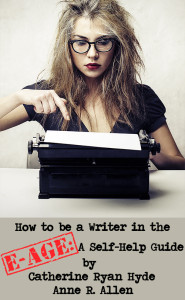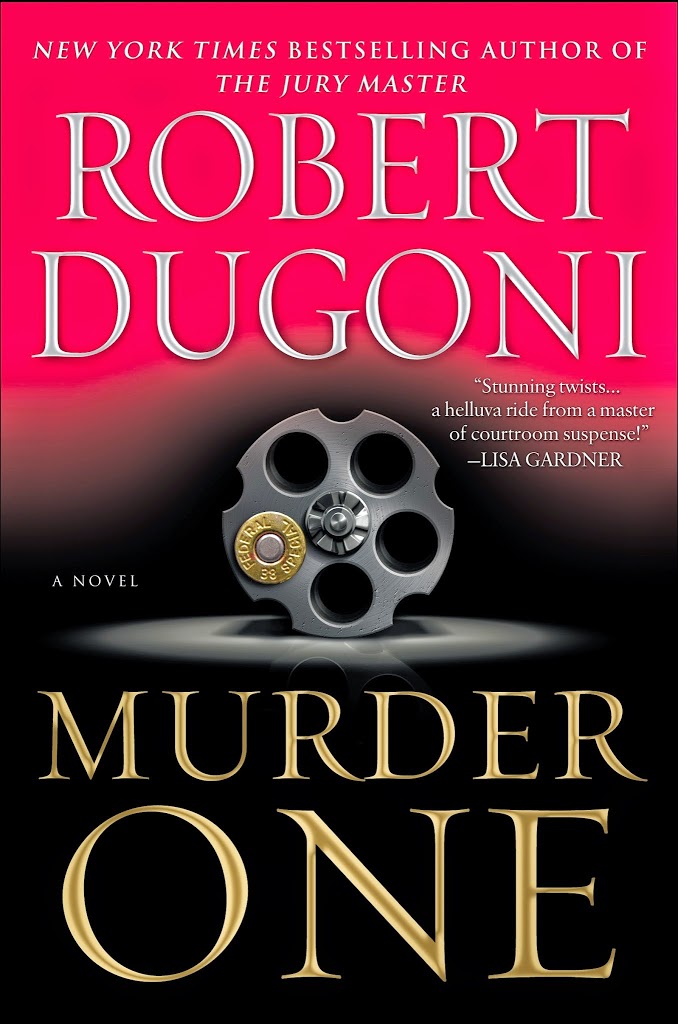by Anne R. Allen
Note from Jodie: I’m just heading home from presenting at Word on the Lake Writers’ Festival all weekend (2 workshops, panel, blue pencil sessions), so humorous author and award-winning blogger A nne R. Allen has graced us with her wit and wisdom today. Take it away, Anne!
nne R. Allen has graced us with her wit and wisdom today. Take it away, Anne!
Thanks, Jodie. It’s a pleasure to be a guest on TKZ.
“Authors behaving badly” tends to be a hot topic on booky forums and blogs these days. A lot of people blame the indie movement, but some of the worst social media behavior I’ve seen comes from traditionally published authors who are following the dictates of their marketing departments.
Unfortunately, a lot of marketers seem to have studied their craft at the “let’s cold-call random strangers just as they sit down to dinner” school of salesmanship.
As a general rule, I feel if someone has the social graces of a rabid squirrel, he’s probably not the guy to listen to on the subject of winning friends and influencing people—which is what social media is all about.
We need to keep in mind that social media isn’t about numbers, no matter how numbers-oriented your marketing department squirrels are. Social media is about making actual friends, not about mass-“friending” a horde of random strangers.
You’ll make a lot more real friends and sell a lot more books in the long run if you heed the following dos and don’ts.
1) DO remember Tweets are casual: Never tweet a query—not to an agent, reviewer, blogger or editor.
2) DON’T post advertising on anybody’s Facebook “wall.” A person’s wall is how they present themselves to the world. When you plaster the cover of your book on their timeline you seriously mess with their brand.
Posting on somebody’s wall is like putting a sign in the front window of their house. Don’t do it without permission. This is true for pleas to sign petitions or donate to charities, no matter how worthy the cause.
3) DO use social media to interact with people, not to broadcast a never-ending stream of “buy my book” messages.
People whose Twitter stream is the identical promo tweet over and over look like robots with OCD. They will only get followed by other compulsive robots.
Twitter is a place to give congrats to a newly agented writer here or a contest winner there. It’s a wonderful vehicle for getting quick answers to questions. Or to commiserate when you’ve had a disappointment. Or if you’ve found a great book you love, tweet it.
Social Media is a party, not a telemarketing boiler room.
4) DON’T put somebody on an email list who didn’t sign up for it. ONLY send newsletters to people you have a personal connection with, or who have specifically asked to be on your list. Lifting email addresses from blog commenters without permission is considered especially heinous. Cue Law and Order music…
5) DO use Direct Messages sparingly. And never automate DMs. Private messages are for personal exchanges with people you have a legitimate connection with—not for advertising or begging for money. The fact somebody has followed or friended you back doesn’t give you license to send them advertising through a private message. This is especially true with “thank you for the follow” messages that come with a demand to “like” your author page, visit your blog and buy your products.
6) DON’T forget to check your @ messages on Twitter several times a day and respond to them. It only takes a moment, but those are people reaching out to you. Ignoring them will negate what you’re doing on Twitter in the first place.
7) DO change the Facebook default “email” address to your actual email address. You are on social media to connect with people. Post a reliable way to connect—which that Facebook address isn’t.
8) DON’T forget to check your “Other” Folder on Facebook regularly. People who want to contact you for legitimate reasons may contact you through a Direct Message, but if they’re not on your “friend” list, the message goes into your “other” file.
A lot of FB users don’t even know it’s there.
If you’ve never heard of it, go to your home page and click on the message button on the left side of the toolbar (It’s the one in the middle, between friend requests and notifications.) They’re semi-invisible if you don’t have anything pending, so if it’s all blank up on the left side of that blue toolbar at the top of the page, move your mouse slightly to the right of the Facebook logo in white and click around.
Mostly your “Other” file will be full of spam and hilarious messages from guys with poor language skills who think Facebook is a dating site. But nestled in there you may find a note from a fan or a fellow author who wants to co-promote or is asking you to join a blog hop or something useful. So do check it once a week or so.
9) DO post links to your website on all your social media sites. And have your contact info readily accessible on your site! Being paranoid on social media makes your presence pointless. Even if you’re on the lam, incarcerated, and/or in the Witness Protection Program, you need to be reachable if you want a career. Use a pen name and get a dedicated email address where you can be reached at that Starbucks in Belize.
10) DON’T “tag” somebody unless they’re actually in the picture. This is an unpleasant way some writers try to get people to notice their book or Facebook page. They’ll post their book cover or some related photo (or worse, porn) and “tag” 50 random people so they’ll all get a notification.
But here’s the thing: a tag means a person is in the photo. Full stop. Yes, you may get a person’s attention with this—but not in a good way. Remember you’re trying to get people to like you, not wish for you to get run over by a truck.
11) DO Network with other writers in your genre. Joining up with other authors to share fans and marketing is one of the reasons you’re on social media. You’re not here to sell to other authors, but you are here to pool your resources.
12) DON’T thank people for a follow, especially on Twitter. It may seem like bad manners, but the truth is most people on Twitter and FB would prefer you DON’T thank them for a follow. That’s because those thank-yous have become 99% spam. If your inner great aunt won’t let you rest without sending a thank-you note for every follow, send it in an @ tweet.
If you actually want to show gratitude, retweet one of their tweets. Then maybe they’ll thank YOU and you can get a conversation going.
13) DO talk about stuff other than your book. Yes, we’re all here because we want to sell books, but social media is not about direct sales. It’s about getting to know people who might help you make a sale sometime in the future. Consider it a Hollywood cocktail party. You don’t launch into your audition piece every time you’re introduced to a film executive. You schmooze. You tell them how great their last picture was. You find them a refill on the champagne. You get them to LIKE you. Then you might get asked to audition in an appropriate place.
14) DO Read the directions. If you’re invited to join a group, and you’re instructed to put links to your books only in certain threads, do so. Anything else will be treated as spam and you could get kicked out of the group. And don’t dominate any site with your personal promos, even if it isn’t expressly forbidden in the rules. Taking more than your share of space is rude. People don’t like rude.
15) DON’T ever respond to a negative review or disrespect a reviewer online.
- Not in the Amazon or Goodreads comments.
- Not on your Facebook page
- Not on their blog.
- Or yours.
And especially don’t Tweet it.
If you get a nasty, unkind review, step away from the keyboard. Go find chocolate. And/or wine. Call your BFF. Cry. Throw things. Do NOT turn on your computer until you’re over it. Except maybe to see these scathing reviews of great authors. Getting a bad review means you’ve joined a pretty impressive club.
If you break this rule, you can face serious consequences. So many authors have behaved badly in the past that Amazon has sprouted a vigilante brigade that can do severe damage to your career if you get on their poop list.
In my forthcoming mystery novel, SO MUCH FOR BUCKINGHAM: The Camilla Randall Mysteries #5, an author breaks this rule and ends up being terrorized—online and off—with death and rape threats, destruction of her business, hacking her accounts, and other horrors.
This isn’t so farfetched. I know authors who have gone through this, for much smaller offenses than my heroine. There are some terrifying vigilantes in the book world who don’t just fight fire with fire. They fight a glow-stick with a nuclear bomb.
So ignore these rules at your peril, or you could be designated a “Badly Behaving Author” and become another of their victims.
What about you? Have you been making any of these faux pas? (I’m not going to claim I haven’t. We were all newbies once.) Do you have any funny “Other” folder encounters you want to share? Any do’s and don’ts of your own would you’d like to add?
Anne R. Allen is an award-winning blogger and the author of eight comic novels  including the bestselling Camilla Randall Mysteries, plus a collection of short fiction and poetry. She’s also co-author of How to be a Writer in the E-Age: a Self-Help Guide, with NYT bestseller Catherine Ryan Hyde.
including the bestselling Camilla Randall Mysteries, plus a collection of short fiction and poetry. She’s also co-author of How to be a Writer in the E-Age: a Self-Help Guide, with NYT bestseller Catherine Ryan Hyde.


